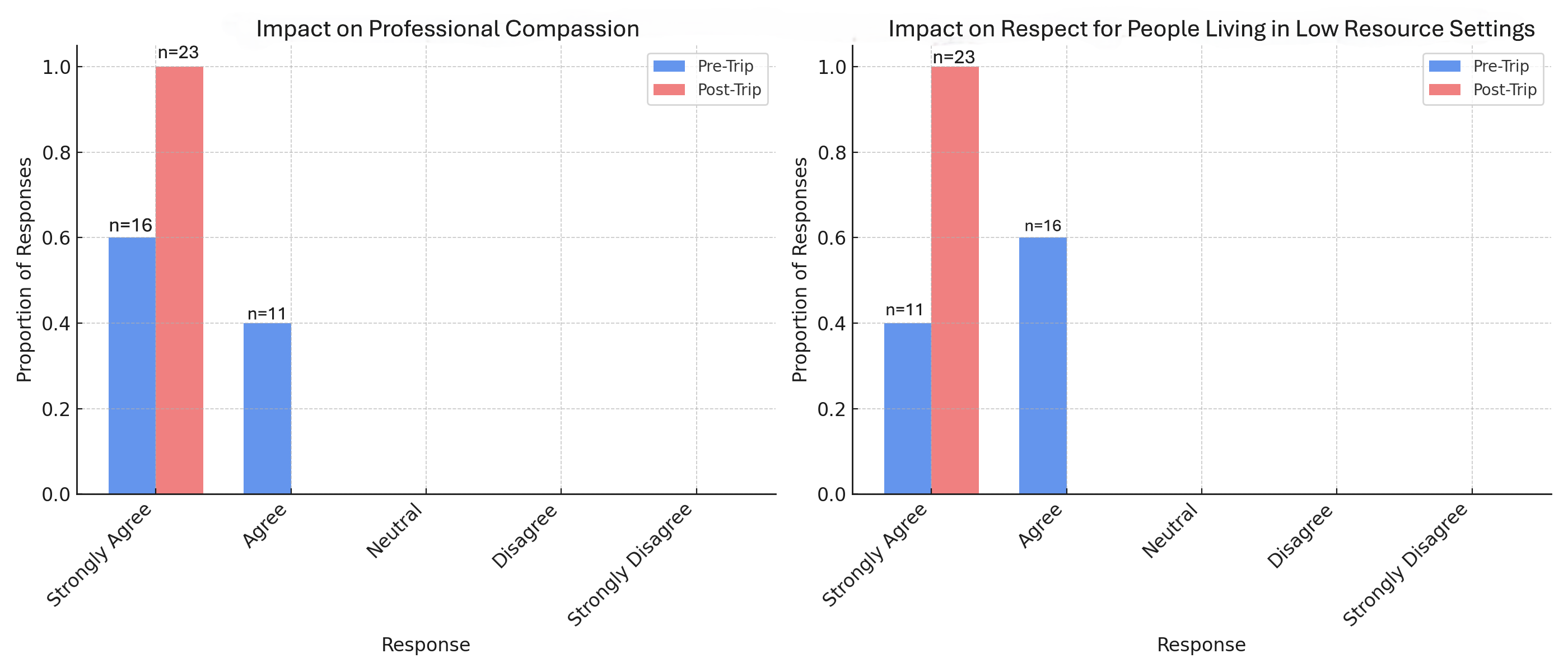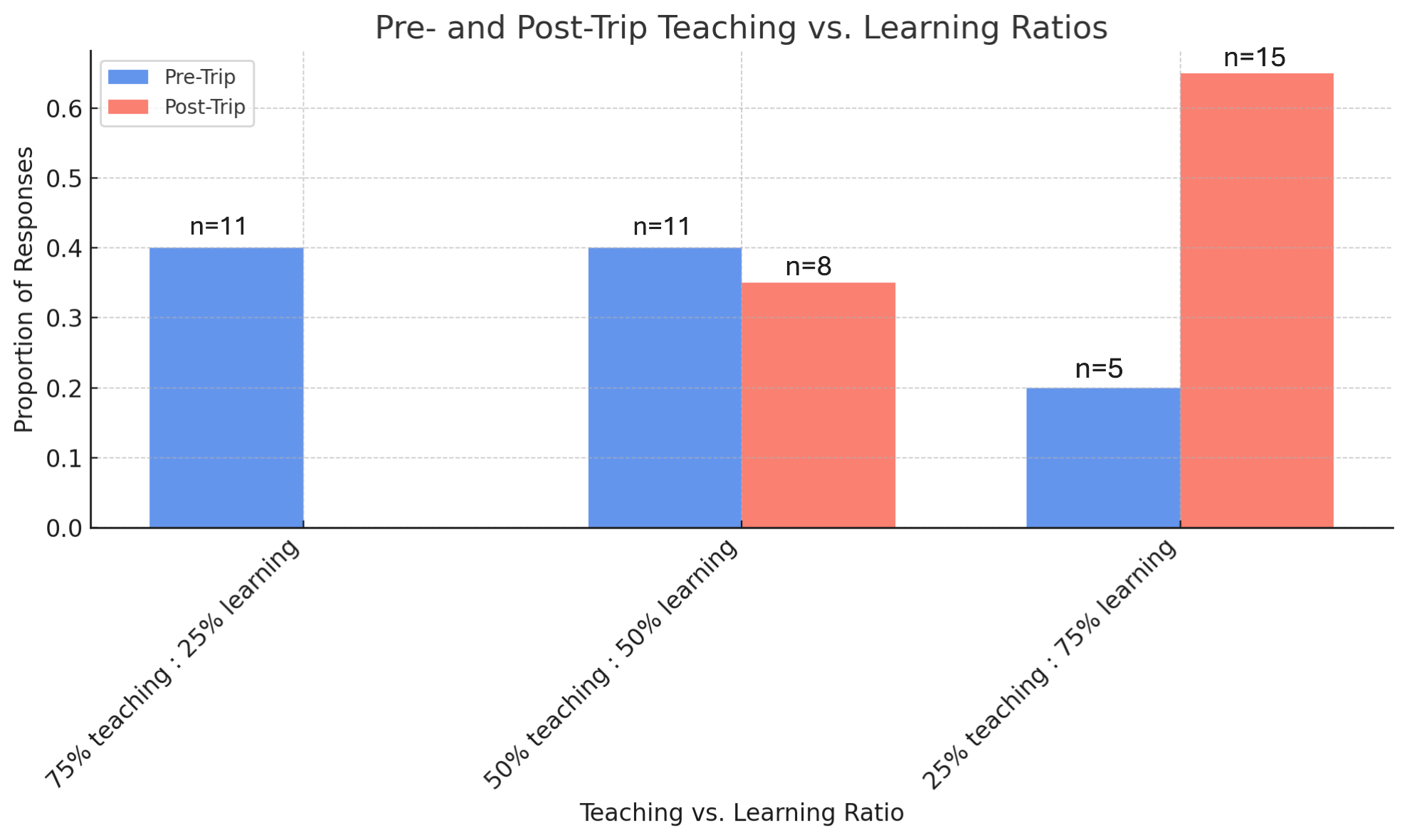Global Neonatal & Children's Health 6
Session: Global Neonatal & Children's Health 6
797 - Beyond the Visit: Impact on U.S. staff of a Multi-year, Short-term, Partner-focused Global Health Allies Program in the Dominican Republic.
Sunday, April 27, 2025
8:30am - 10:45am HST
Publication Number: 797.3974
Anabel Fernández, Childrens Hospital of Philadelphia, Philadelphia, PA, United States; Marissa Olson, Children's Hospital of Philadelphia, Philadelphia, PA, United States; Ramona Cordero, Niños Primeros en Salud, Consuelo, San Pedro De Macoris, Dominican Republic; Francisca Vásquez Santana, Childrens Hospital of Philadelphia, San Pedro De Macoris (Zona Urbana), San Pedro De Macoris, Dominican Republic; Maria Dunn, Perelman School of Medicine at the University of Pennsylvania, Philadelphia, PA, United States; Andrew P. Steenhoff, Children's Hospital Of Philadelphia & Univ Of Pennsylvania, Philadelphia, PA, United States
- AF
Anabel Fernandez, MPH (she/her/hers)
Global Health Program Manager
Childrens Hospital of Philadelphia
Philadelphia, Pennsylvania, United States
Presenting Author(s)
Background: Short-term global health (GH) outreach variably achieves sustained impact. The GH Allies program (GHA), developed jointly by a U.S. children’s hospital and colleagues in the Dominican Republic (DR), addresses this by facilitating twice-yearly structured visits that integrate U.S. employees with community health promoters (CHPs) in the DR. Building on a 20-year partnership, the program focuses on CHP continuous education on topics chosen by CHPs while fostering professional growth and reciprocal learning for visiting clinicians.
Objective: To evaluate the GHA program’s impact on U.S. staff’s professional development, perspectives, and empathy we examined (1) perspectives on professional compassion and respect, (2) changes in teaching/learning expectations, and (3) intentions to engage further in GH.
Design/Methods: Pre- and post-trip surveys were administered to U.S. staff from June 2022 to June 2024, capturing self-reported Likert-scale perspectives on professional compassion, respect towards people in low-resource settings (LRS), teaching and learning expectations, and professional satisfaction. Quantitative data were compared pre- and post-trip, while qualitative data were analyzed for common themes regarding participants’ experiences and perceived program value.
Results: Of 29 invitees, surveys were completed by 27 (93%) staff pre-trip and 23 (79%) post-trip. Post-trip, 100% staff reported growth in both their “professional compassion” and level of respect for people living in LRS. Expectations on the ratio of teaching vs. learning shifted: 50% pre-trip expected to teach 75% of the time, while post-trip 65% of staff reported that they had learnt 75% of the time. Additionally, 96% would apply again, 80% expressed a greater desire to continue working at the U.S. hospital due to the program, and all were “very” (20/23) or “somewhat likely” (3/23) to recommend it to others. Qualitative feedback emphasized the program’s supportive environment and sustainability, and the importance of organized collaboration for meaningful GH impact.
Conclusion(s): Participants in the GHA program reported greater compassion and respect for individuals in LRS, aligning with the program objective to enhance professional empathy. The shift from anticipated teaching to unexpected learning underscores the value of reciprocal education. Furthermore, the program positively influenced staff’s long-term engagement in their U.S. institution. The program provides a model for US institutions pursuing sustainable GH engagement and long-term partnership. Next steps include a survey of CHP to inform mutually beneficial program development.
Impact on Professional Compassion; Impact on Respect for People Living in Low Resource Settings
 Figures 1a & 1b: Pre- and post-trip comparisons of impact on professional compassion and impact on respect for people living in low resource settings amongst U.S. staff participants.
Figures 1a & 1b: Pre- and post-trip comparisons of impact on professional compassion and impact on respect for people living in low resource settings amongst U.S. staff participants. Pre- and Post-Trip Teaching vs. Learning Ratios
 Figure 2: Pre- and post-trip comparison of perceived teaching vs. learning ratio amongst U.S. staff participants.
Figure 2: Pre- and post-trip comparison of perceived teaching vs. learning ratio amongst U.S. staff participants.
